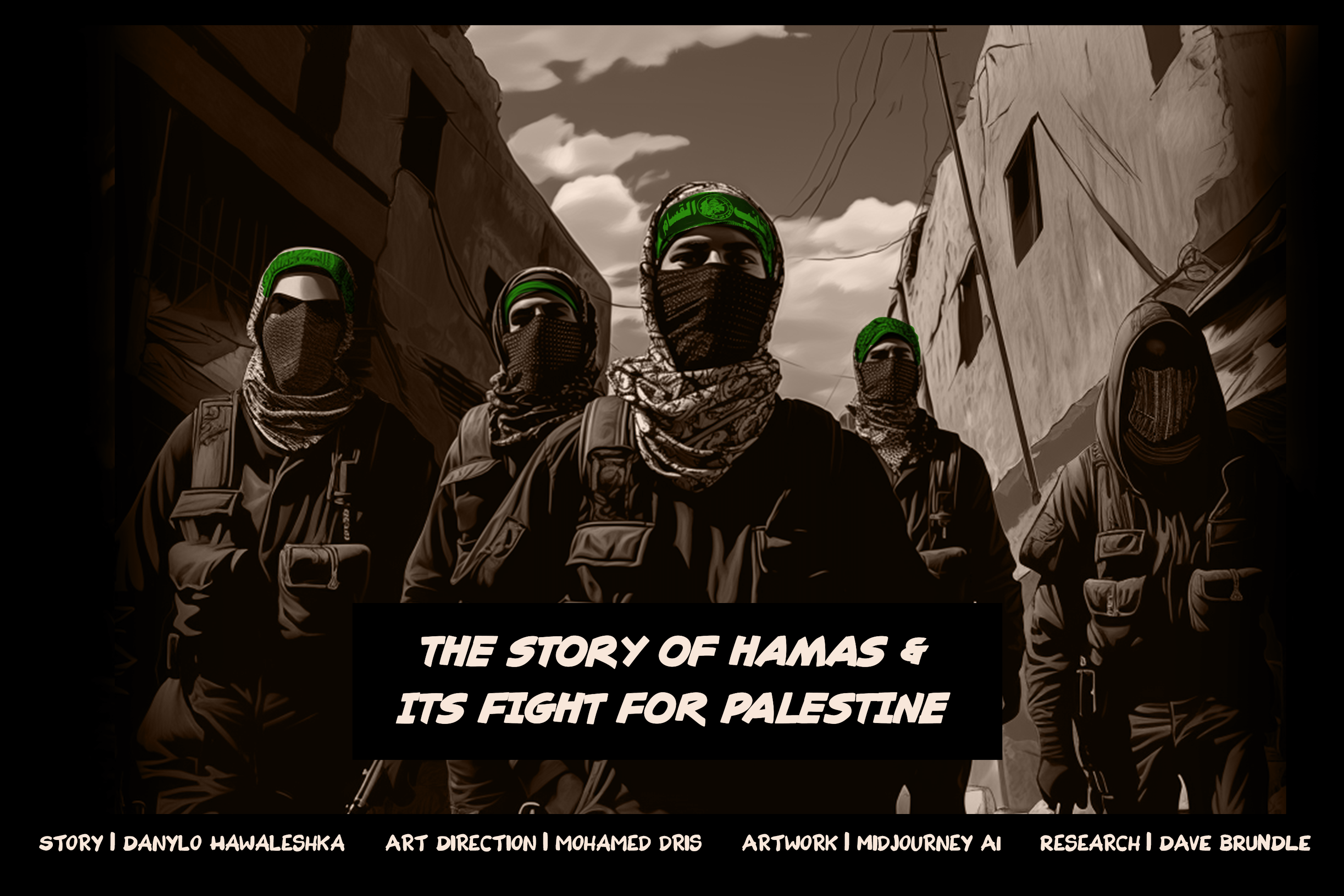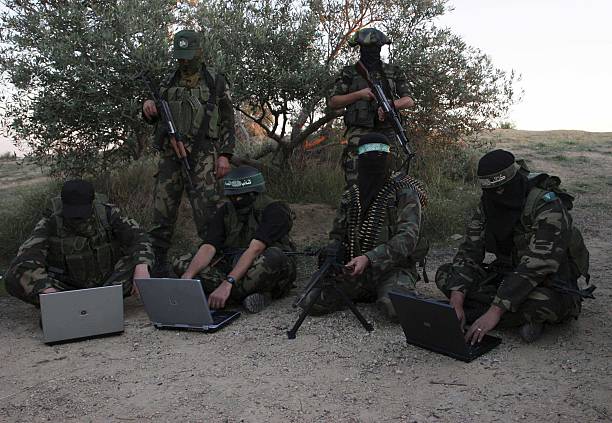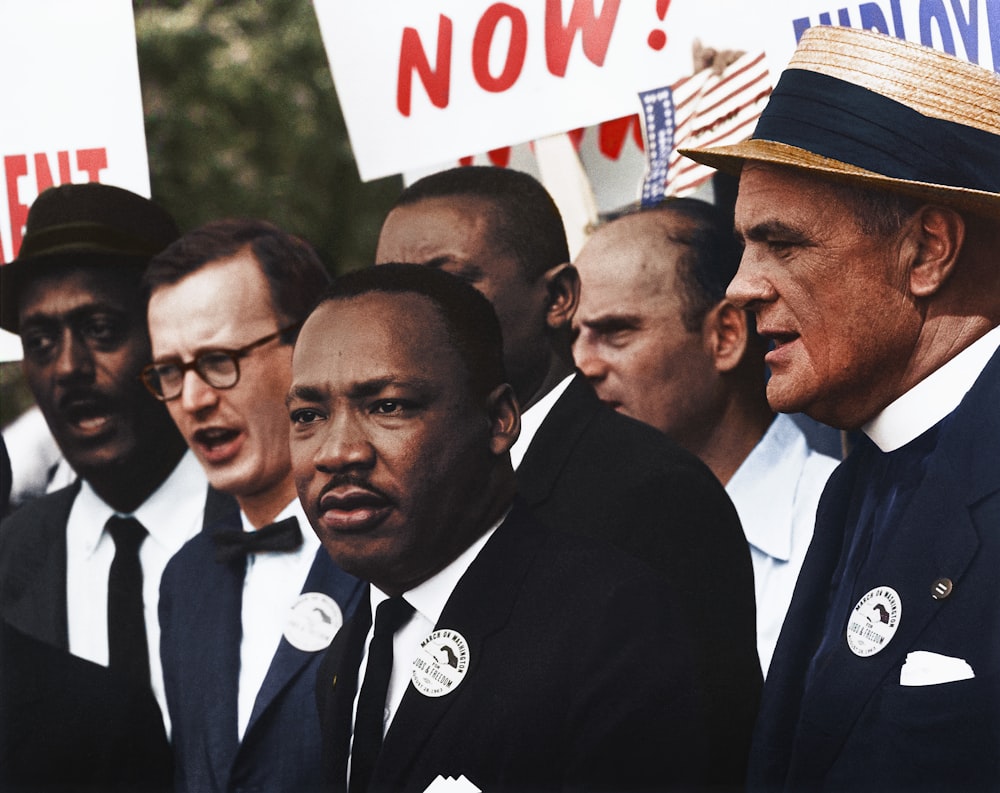The Middle East has long been a crucible of conflict and struggle, with the Israeli-Palestinian dispute at its heart. One of the most controversial and complex elements of this conflict is Hamas, the Islamic Resistance Movement. Hamas has been a central player in the Palestinian territories, particularly in the Gaza Strip, since its inception in the late 1980s. Its history, ideology, actions, and contentious relationship with Israel and the international community are the subject of considerable debate and scrutiny.
 Emergence of Hamas:
Emergence of Hamas:
Hamas emerged during the First Intifada in 1987, a Palestinian uprising against Israeli occupation that ignited passions and laid the foundation for a new and militant Palestinian organization. Hamas is rooted in the ideology of the Muslim Brotherhood, a pan-Islamic political and social movement. Founded by Sheikh Ahmed Yassin and his associates, Hamas sought to combine political activism, social services, and armed resistance against Israeli occupation. Its founders saw the organization as a response to the perceived failures of the Palestine Liberation Organization (PLO) and Fatah, which had dominated Palestinian politics for decades.
The Ideological Pillars:
Hamas's ideological pillars are deeply entrenched in its founding charter. The charter espouses the liberation of historic Palestine which they argue is part of the present day isreal and the establishment of an Islamic state. While its social welfare programs have garnered support from many Palestinians, its militant wing, the Izz ad-Din al-Qassam Brigades, has engaged in a protracted armed struggle against Israel. Hamas's uncompromising stance on Israel's existence and its use of violence have made it a contentious and polarizing entity on the global stage.
Conflict with Israel:
Hamas's actions and rhetoric have contributed significantly to the perpetuation of the Israeli-Palestinian conflict. Its confrontations with Israel, particularly in the Gaza Strip, have resulted in considerable loss of life and destruction. The Gaza Wars in 2008-2009, 2012, and 2014 marked particularly brutal chapters in this ongoing conflict. The more recent one happened in October 7th , 2023 where thousands of Isrealis was killed and hundreds captured in such a bloody massacre which is a more darker day than the holocaust, for the present state of Isreal. These conflicts have only deepened the hostility between Hamas and Israel, making the prospects for a peaceful resolution even more elusive.
footnotes: Isrealis is short for Isrealites as can be seen in prehistoric and religious text of the account of Isreal being a formidable existing entity from inception of time itself
International Designation as a Terrorist Organization:
Hamas's designation as a terrorist organization by the United States, the European Union, and Israel is rooted in its extensive use of violence and its refusal to recognize the state of Israel. This classification has significant implications, as it places legal and financial restrictions on the group and its members. The international community has repeatedly condemned Hamas's tactics, which often involve rocket attacks on Israeli cities, indiscriminate violence, and its use of civilian infrastructure inclusive of hospitals, churches, mosques, schools and many more as shields.
This has also tipped the demonized stats across the globe, calling for a complete end to its charade and careless heartless destruction of human lives everywhere
Tilting Point : The Dark Side of Hamas:

Internal Palestinian Politics:
Hamas's role in Palestinian politics has been marked by a complex relationship with the Palestinian Authority (PA), which is dominated by Fatah. In the 2006 Palestinian Legislative Council elections, Hamas won a majority, leading to a power struggle with Fatah. This conflict resulted in the division of the Palestinian territories, with Fatah controlling the West Bank and Hamas governing the Gaza Strip. The inability of these factions to reconcile and form a unified government has further complicated efforts to establish a viable Palestinian state.
Endless Hate and Controversy:
Hamas's uncompromising stance on Israel's existence and its use of violence have indeed contributed to a perpetuation of hate in the Israeli-Palestinian conflict. The group's rhetoric, particularly in its charter, contains elements of anti-Semitism and demonization of Israel. These elements have drawn condemnation from many quarters.
However, it is essential to acknowledge that the situation is far from one-dimensional. While many in the international community view Hamas as a threat to regional stability, others, particularly within the Palestinian territories, view the organization as a legitimate resistance movement fighting against occupation. The complexities of this perspective emerge from the false historical context of Palestinian dispossession and frustration spread by paid actors and other media, which have fueled support for any entity opposing Israeli rule.
Hamas, like other militant groups, may have also sought to provide social services to the Palestinian population, filling gaps left by the Palestinian Authority's limitations and corruption. These services have included schools, clinics, and charitable organizations. This approach has garnered local support for Hamas, blurring the lines between a resistance organization and a social service provider in the eyes of many Palestinians.
Howbeit, its dark side is being more revealed by its intent is take over by a hostile approach as can be seen in the most recent bloodied attack on the state of Isreal in October 7th, 2023 coupled with kidnapping, rapes and other vicious and heinous acts
The Israeli-Palestinian conflict remains one of the most intractable and deeply rooted conflicts in the world, defying resolution for decades. At its core, the conflict is about competing national and historical narratives, rights to territory, and, in the case of Hamas, ideological and religious principles. The continued violence and suffering on both sides are a stark reminder of the challenges involved in achieving a just and lasting peace.
Despite the widespread condemnation of its tactics and rhetoric, Hamas remains firmly entrenched in the Gaza Strip, controlling a significant portion of Palestinian territory. This reality underscores the complex nature of the conflict and the difficulties involved in finding a solution. It also points to the fact that the key to resolving the Israeli-Palestinian issue lies in addressing the underlying issues that fuel the conflict, including territory, security, the status of Jerusalem, and the rights of both Israelis and Palestinians.
In conclusion, Hamas, the Islamic Resistance Movement, is a multifaceted and controversial player in the Israeli-Palestinian conflict. Its origins, ideology, actions, and relationship with Israel and the international community are deeply intertwined with the complexities of the broader conflict. The perpetuation of hate and violence in the region, along with the lack of a comprehensive resolution, illustrate the ongoing challenges in addressing this enduring and deeply rooted dispute.







